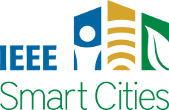About the Speakers
 Jianbu Lu Jianbu Lu
Dr Jianbo Lu received his Ph.D. degree in Aerospace Engineering from the Purdue University (1997). Since 2000, he has been with Ford Motor Company, where he is currently Technical Expert and Group Leader in Robotics and Intelligent Vehicles Group at the Ford Research & Innovation Center. Prior to that, he was with Delphi Corp. (1997–2000) and China Academy of Railway Sciences (1986-1990). Dr Lu has published over 80 papers in dynamical system & controls and their applications. He holds 132 US patents in vehicle control, active safety, driver assistance, and intelligent vehicles. His papers and patents have received about 4600 citations and H-index 36. Dr Lu was awarded 2 times with the highest Ford corporate award—the Henry Ford Technology Award (in 2002 and 2013)—for developing and implementing automotive technologies with significant business impact. Dr Lu’s research interests and pioneering contributions are related to the use of dynamical system and controls as practical tools to solve vehicle safety and abnormal issues, driver-vehicle-interactions, vehicle adaptation and automation, vehicle sensing, and real-time system identification. Applications of his lasting contributions to automotive systems can be found in a number of current applications in tens of millions of vehicles including roll stability control (industry-first, debuted on Volvo XC 90 in 2003), curve control and advanced stability control (industry-first, debuted on Ford Explorer in 2010), adaptive drive control (implemented in Lincoln Navigator in 2018), and post-collision braking / smart cruise control (to be debuted on Ford Explorer in 2020 [https://www.motortrend.com/news/2020-ford-explorer-6-cool-features/]). His other efforts with significant research and business impact include driver workload estimation, drive behavior and incident report, chassis system health monitoring, chassis controls (suspension, braking and steering controls), road condition detection, integrated sensing system, cloud computing, robotic system motion planning and control, and human-robot-interactions. Dr. Lu is on the Editorial Board of Int. J. of Vehicle Autonomous Systems and Int. J. of Vehicle Performance. He was an Associate Editor for the IEEE Control Systems Technology (2010-2016) and the IFAC J. of Control Practice Engineering (2008-2014). He served as the Vice Chair for Industry and Application at the 2015’s American Control Conference. He was the organizer, Chair, speaker, panelist, program committee member, and associate editor for various conferences. Dr. Lu was the founder and Co-Chair of the Intelligent Vehicular Systems and Control Technical Committee under the IEEE Society of System, Man and Cybernetics. He is a Senior Member of IEEE. In summary, Dr Lu has made pioneering contributions in applying dynamical system and controls to automotive systems. He has successfully applied his innovative ideas and implementable results to numerous automotive products.
|


 Jianbu Lu
Jianbu Lu